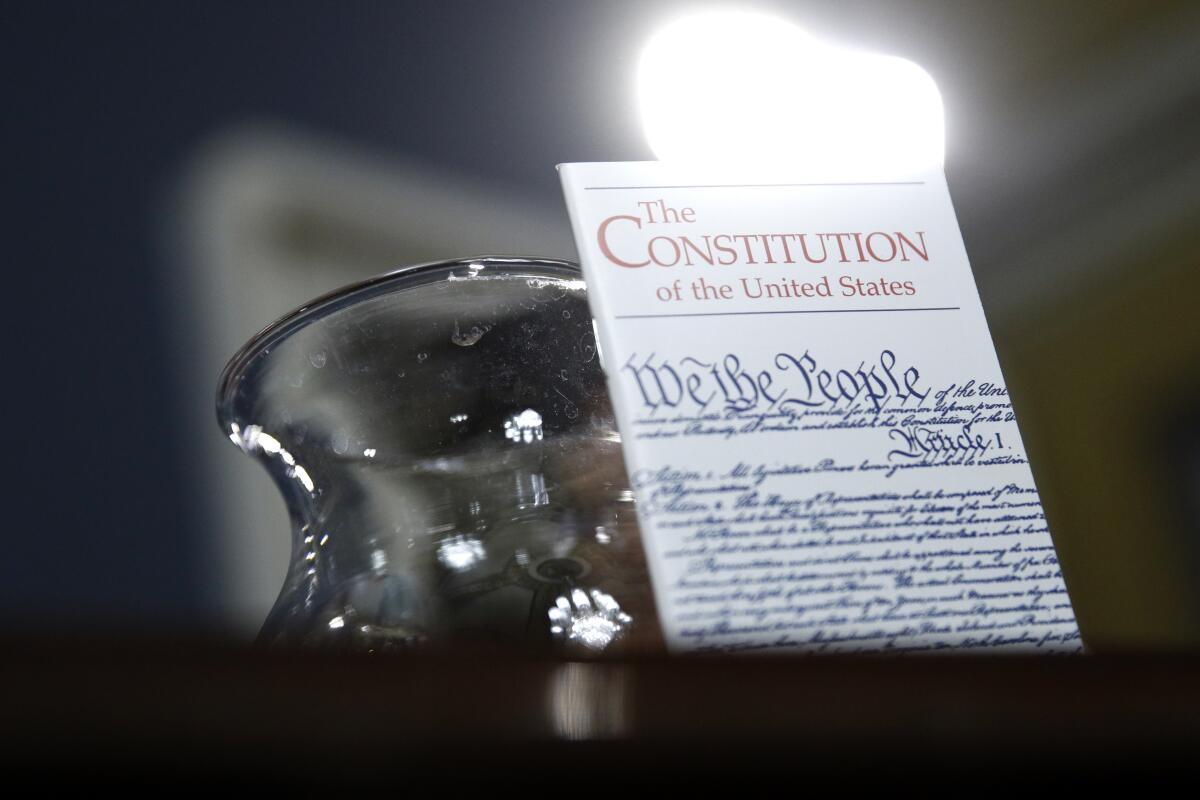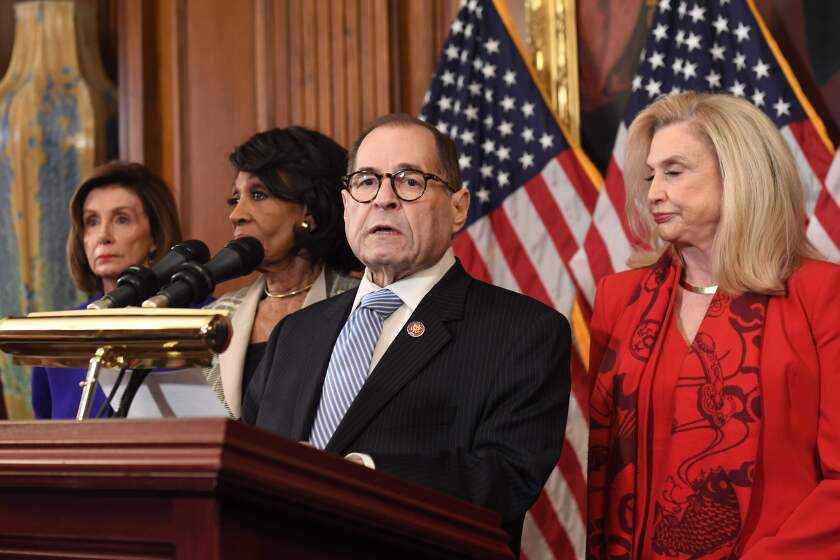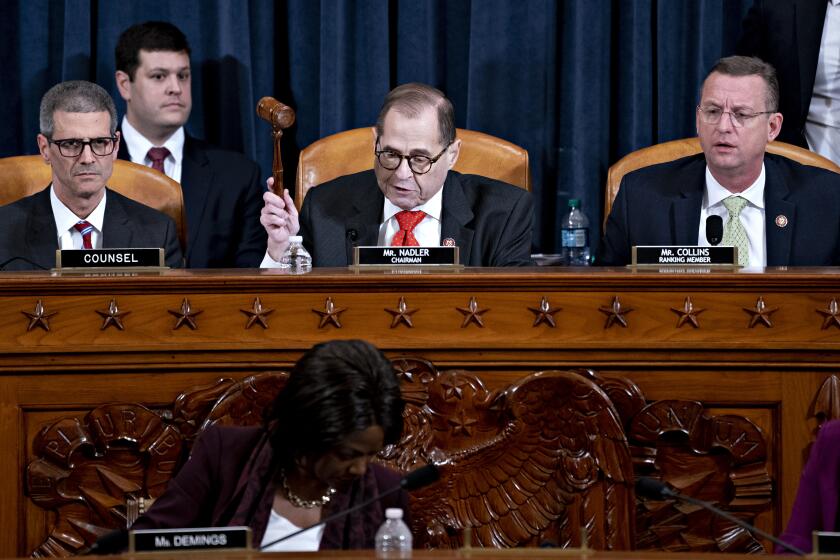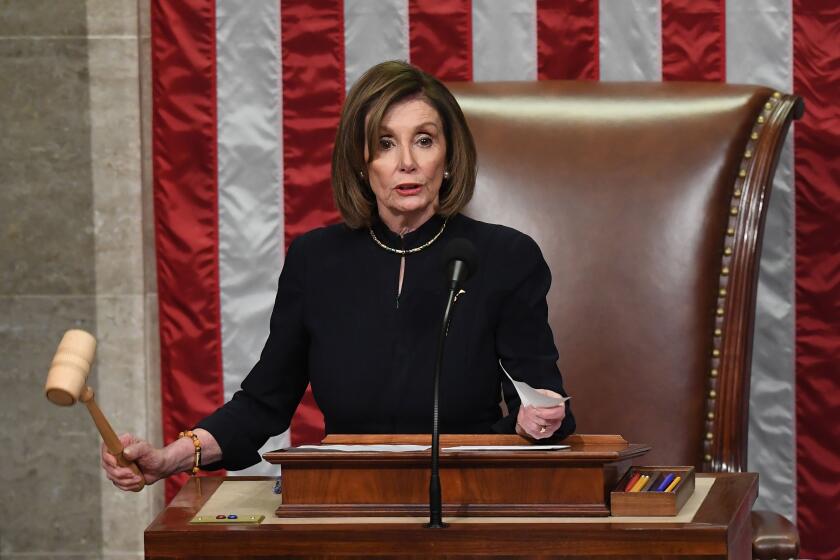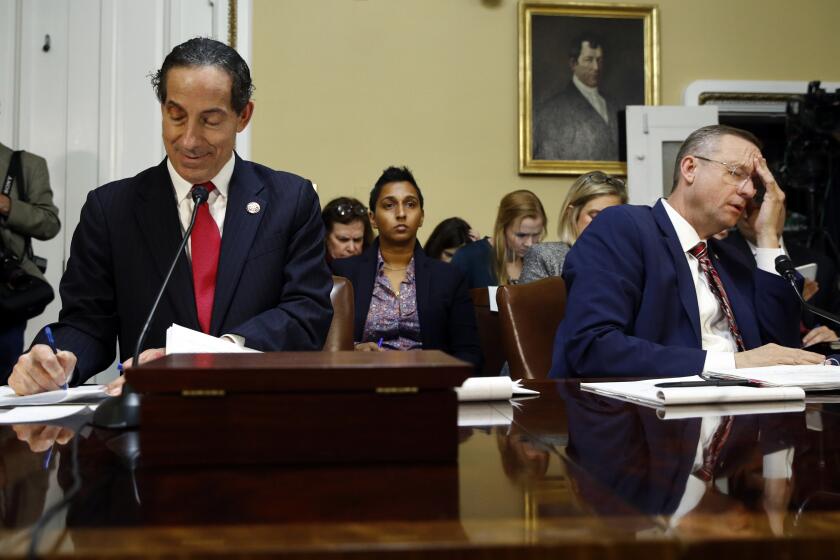First, as part of its oversight and investigative responsibilities, the House considers whether to bring impeachment charges against federal officials.
Individual members of the House can introduce impeachment resolutions or the House can start the process by passing a resolution that authorizes an inquiry.
The current impeachment process was kicked off after Speaker Nancy Pelosi authorized an inquiry.
The inquiry started with closed-door testimony, later made public, by three witnesses:
- William B. Taylor Jr., former U.S. ambassador to Ukraine
- George P. Kent, State Department official for European and Eurasian affairs
- Marie Yovanovitch, former U.S. ambassador to Ukraine
That was followed by two days of public hearings with the three witnesses.
The committee decides whether to write up articles of impeachment
The House Judiciary Committee heard from four law professors in a public hearing:
- Jonathan Turley, George Washington University Law School
- Noah Feldman, Harvard University
- Pamela Karlan, Stanford University
- Michael Gerhardt, University of North Carolina
It also considered evidence against Trump from the House Intelligence Committee and approved two articles of impeachment: abuse of power and obstruction of Congress.
The committee then votes on whether to send it to the full House
The Judiciary Committee voted along party lines to send the articles of impeachment to the House on Friday, Dec. 13, following 14 hours of debate.
If the committee votes in favor, the full House of Representatives votes on impeachment
That’s where we are now: The Democratic-led House voted to impeach the president.
The House charged Trump with committing high crimes and misdemeanors, the constitutional standard needed to warrant his removal from office.
Managers are appointed
Once the articles are approved, the House appoints members to manage its case in the Senate trial.
The managers act as prosecutors in the Senate and are usually members of the Judiciary Committee. The number of managers has varied, but in past impeachment trials the number has typically been an odd one.
The Senate conducts a trial
The Senate trial is expected to begin in January. Republicans, who are the majority, are determined to make it a quick trial — perhaps one to two weeks, compared with the five-week trial of President Clinton in 1999 that ended in his acquittal.
But as Laura King writes, how it will work is still very uncertain.
Once the trial starts, both House Democrats and the president’s lawyers are expected to present their cases.
The Senate could decide to continue the trial by calling witnesses, but Majority Leader Mitch McConnell rejected a proposal from Minority Leader Charles E. Schumer (D-N.Y.) to call witnesses.
The Senate votes
To remove the president from office, the Senate must vote by a two-thirds majority to do so. In a Republican-controlled Senate, that is unlikely.
So what are the consequences? As Chris Megerian writes: “The ultimate impact of the impeachment saga awaits next year’s election results and, eventually, the verdict of historians. For now, national polls show public opinion has barely budged in either direction, with Americans divided down the middle, mainly by party.”
